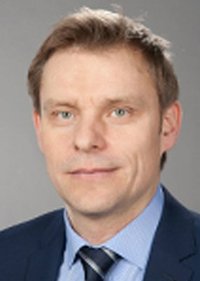University Medical Center (UMC) Mainz
Maria Felicia Basilicata Christian Behl Benedikt Berninger Luciana Berod Tobias Bopp Andreas Daiber Sven Danckwardt Carsten Deppermann Stephan Grabbe Thomas Hofmann Thomas Kindler Daniela Kramer Daniela Krause Dilja Krueger-Burg Michael Kühn Beat Lutz Johannes Mayer Wolfram Ruf Katrin Schäfer Susann Schweiger Natalia Soshnikova Tim Sparwasser Oliver Tüscher Sara Vieira-Silva Ari Waisman Philipp Wild Jennifer Winter Fatemeh Zare-ShahnehDNA damage & cancer

Dysfunction of the DNA damage response is a driving force for genome instability and cancer. In childhood cancers, inherited mutations in cancer predisposition genes substantially contribute to cancer development and was linked to specific cancer-predisposing syndromes (CPS). Numerous CPS including Li-Fraumeni syndrome (LFS), Li-Fraumeni like syndrome (LFLS) and Fanconi anemia (FA)/Breast Cancer Associated (BRCA) have been described. In general, LFS and LFLS patients harbor germline mutations in genes regulating the tumor suppressor p53 pathway, while FA/BRCA patients harbor mutations in genes required for DNA double-strand break (DSB) repair. Interestingly, a substantial part of FA, LFS and LFLS patients do not harbor the known homozygous mutations in the genes linked to the respective CPS. Consequently, the mechanisms driving the CPS in those patients remain unclear. In this collaborative project, we used whole-exome sequencing (WES) of parents-children trios to identify germline mutations in children with cancer. Our bioinformatic analysis revealed a set of novel combined heterozygous mutations in the FA/BRCA and the LFS/LFLS pathway as well as in genes coding for the DNA damage signaling kinases ATM, ATR and HIPK2 in the germline of children with cancer.
Positions held
- Since 2018: W3-Professor & Chair of Toxicology, Institute of Toxicology, University Medical Center (UMC), Mainz; Director, Institute of Toxicology, University Medical Center (UMC), Mainz
- 2008 - 2018: Permanent Group Leader Position, DKFZ, Heidelberg
- 2006 - 2018: Head of Research Group “Cellular Senescence”, German Cancer Research Center (DKFZ), Heidelberg
- 2004 - 2005: Research Group “Molecular Ageing Research”, German Center for Research on Ageing (DZFA), University of Heidelberg
Education
- 2016: Habilitation and venia legendi for Biochemistry & Molecular Biology , Faculty of Biology, University of Heidelberg
- 2000 - 2004: Postdoctoral research with Prof. Hans Will, Heinrich-Pette-Institut, University of Hamburg
- 2000: PhD (summa cum laude), University of Heidelberg
- 1997 - 2000: PhD studies with Prof. M.Lienhard Schmitz & Prof. Wulf Dröge, DKFZ Heidelberg
- 1997: Diploma in Biology, University of Heidelberg
- 1991 - 1997: Studies of Biology, University of Heidelberg
Selected publications by Thomas Hofmann
Sigismundo G, Arseni L, Palacio-Escat N, Hofmann TG, Seiffert M, Krijgsveld J (2023). Multi-layered chromatin proteomics identifies vulnerabilities in DNA repair. Nucleic Acids Res 51:687-711. Link
Clemm von Hohenberg K, Müller S, Schleich S, Meister M, Bohlen J, Hofmann TG, Teleman AA (2022). Cyclin B/CDK1 and Cyclin A/CDK2 phosphorylate DENR to promote mitotic protein translation and faithful cell division.Nat Commun. 13:668. Link
Liebl MC, Moehlenbrink J, Becker H, Raddatz G, Abdeen SK, Aqeilan RI, Lyko F, Hofmann TG (2021) DAZAP2 acts as specifier of the p53 response to DNA damage. Nucleic Acids Res, 49(5):2759-2776 Link
Rodríguez-Paredes M, Bormann F, Raddatz G, Gutekunst J, Lucena-Porcel C, Köhler F, Wurzer E, Schmidt K, Gallinat S, Wenck H, Röwert-Huber J, Denisova E, Feuerbach L, Park J, Brors B, Herpel E, Nindl I, Hofmann TG, Winnefeld M and Lyko F (2018) Methylation profiling identifies two subclasses of squamous cell carcinoma related to distinct cells of origin. Nat Commun, 9:577 Link
Conrad E, Polonio-Vallon T, Meister M, Matt S, Bitomsky N, Herbel C, Liebl M, Greiner V, Kriznik B, Schumacher S, Krieghoff-Henning E, and Hofmann TG (2016) HIPK2 restricts SIRT1 activity upon severe DNA damage by a phosphorylation-controlled mechanism. Cell Death Differ, 23:110-122 Link
Ucar O, Kaiyong Li, Dvornikov D, Kreuz C, Timmer J, Matt S, Brenner L, Smedley S, Travis MA, Hofmann TG, Klingmüller U and Kyewski B (2016) A thymic epithelial stem cell pool persists throughout ontogeny and is modulated by TGF-ß. Cell Rep, 17:448-457 Link
Ucar A, Ucar O, Klug P, Matt S, Brunk F, Hofmann TG* and Kyewski B* (2014). Adult thymus contains FoxN1- epithelial stem cells that are bipotent for medullary and cortical thymic epithelial lineages. Immunity, 41:257-269 (*indicates joint contribution) Link